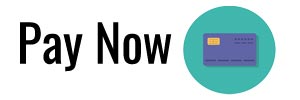
Multi-factor authentication (MFA) aka two factor authentication (2FA)
Did you know that over 99% of account hacks could have been prevented by using multi-factor authentication (MFA)? Using MFA makes it significantly harder for criminals to access your online accounts. It is a security measure that requires anyone logging into an account to navigate a two-step process to prove their identity. Unfortunately, many people are not familiar with MFA.
Here’s how it works. When you log into your account, the first step is entering your username or email address, along with your password or passphrase. With MFA activated, the second step is to provide an extra way of proving that you are you, like entering a PIN code or a code that has been texted or emailed to your mobile device or authenticator app. Since hackers almost never have access to your mobile device or authentication method, it can prevent them from gaining access to your account.
Many platforms, such as Meta Facebook, Google, Twitter, and LinkedIn offer MFA to help users protect access to their accounts. It prevents a cybercriminal from signing in to your account with just your password. It is a minor inconvenience when logging into your account, as it requires an extra step, but multi-factor authentication greatly increases the security of your account.
One word of advice. Pay attention to email or text messages asking if you are trying to sign into your account when you are not. Hackers like to target their victims and catch them off guard, often at night. If you receive a series of prompts on your phone asking if it was you signing into a device that is not recognized, and it was not you, do not click on “yes” to stop the prompts. Hackers are hoping to wear you down. Clicking “yes” might stop the prompts but it also gives the hackers the “keys to the kingdom” so to speak, allowing them to lock you out of your own account. You should also change your password for the account ASAP. Also, if you reused that password, make sure to change it for every other account that uses it (this is why every password should be unique).
Contact Esser Consulting, LLC for help with setting up and using multi-factor authentication.










